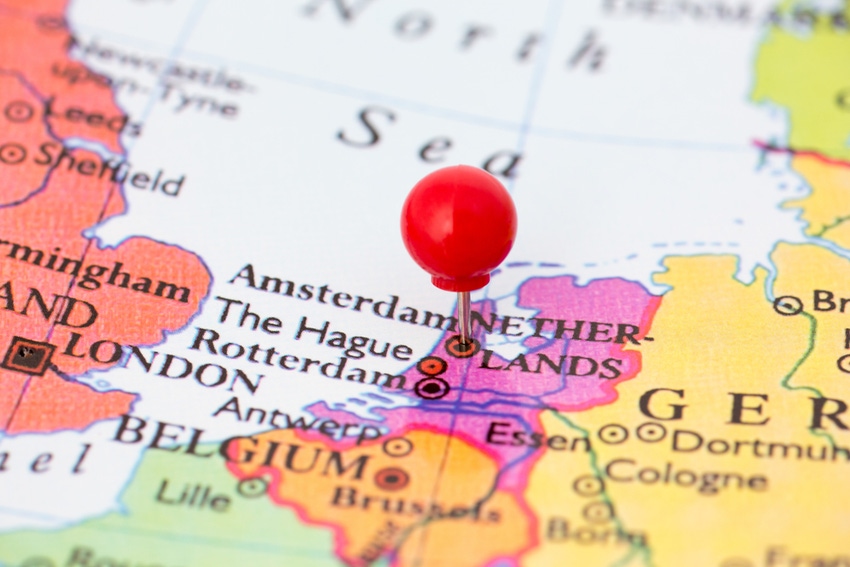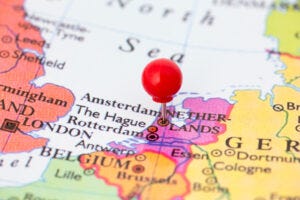Content Spotlight
Podcast: MilliporeSigma says education vital to creating unbreakable chain for sustainability
MilliporeSigma discusses the importance of people, education, and the benefits of embracing discomfort to bolster sustainability efforts.

Talent pool, logistics, and a collaborative ecosystem are three overarching reasons why your CGT firm should invest in the Netherlands, says Invest in Holland.
The Netherlands Foreign Investment Agency (NFIA) works with the nationwide Invest in Holland network, which is a governmental organization. Marit Vink, project manager Life Sciences & Health at NFIA/Invest in Holland told delegates attending BPI Europe 2023, Amsterdam there is a “big focus” on cell and gene therapies (CGTs) in the country.
The country is already home to some big players in the life sciences space. Biopharma giant Bristol-Myers Squibb (BMS) invested in its fifth cell therapy manufacturing plant in Leiden, Netherlands in April 2021. The Leiden facility is the first cell therapy plant in Europe for the firm and the location of the site takes advantage of the growing life sciences region near Amsterdam and more importantly, provides it with convenient access to transport to ship patient cells.

DepositPhotos/
Bigandt
Johnson & Johnson (J&J) also has a site in Leiden, equipped with single-use bioreactors to a scale of 1,000 L and was built in response to the 2014 Ebola outbreak in West Africa. It was initially used to manufacture the firm’s investigational mosaic HIV-1 preventive vaccine when it opened its doors in 2018.
Swiss contract development and manufacturing organization (CDMO) Lonza has a CGT plant in Geleen, which it describes as being located in the “heart of Europe.” The site supports commercial autologous cell therapy products as well as messenger RNA (mRNA).
Vink pointed out the three main reasons she believes that companies like those aforementioned decide to locate capabilities in the Netherlands.
There is a general consensus among professionals that the amount of talent coming through is not reflective of the huge investment in capacity identified across the Life Sciences space. The lack of qualified staff in the space is well documented, with the CGT sector particularly affected.
Vink said that companies choose the Netherlands because of the talent pool here and that the country is educating “the right talent for the job”. She referenced that the area has a “world class education system” with 12 of the top 250 universities residing in The Netherlands.
Additionally, there is a focus on training the next “(re)generation” and multiple universities offer specific courses to cater to this need. The close relationship between academia and the organization means it is able to “align education with the need from life science business.”
Moreover, she said a major benefit companies can take advantage of is the access to a multilingual workforce as the country is “number one in English as a second language.”
When deciding where to manufacture your product, an important consideration is the logistical aspect of distributing the material created. Vink said the logistics of the Netherlands is “one of the main reasons CGT companies decide to locate here.”
She presented a quote from Louis Van De Wiel, head of global supply chain at Kite to exemplify the positives associated with the location: “With Amsterdam Schiphol Airport being a major European transport hub, our location next to it provides us with quick and convenient access to all of Europe, which is crucial to our operation. So, it just makes sense for us to be situated here, in this area.”
Additionally, Vink reiterated Lonza’s line that the country is “at the heart of Europe. It is easy to access, and it is also easy to access patients. There is very good infrastructure here and it is a very concentrated ecosystem with major distributions here as well.”
Vink referenced that the national regenerative medicine organization RegmedXB is backed up by €56 million ($68.8 million) in funding, which has been used to invest in facilities across the country and companies are able to take advantage of this.
The location also means connection is easier as “it is more so a city than it is a country because every cluster is connected to each other through infrastructure and through collaborations.”
The organization itself calls the Netherlands “Europe’s connected Life Sciences & Health metropolis” because of this reason.
You May Also Like